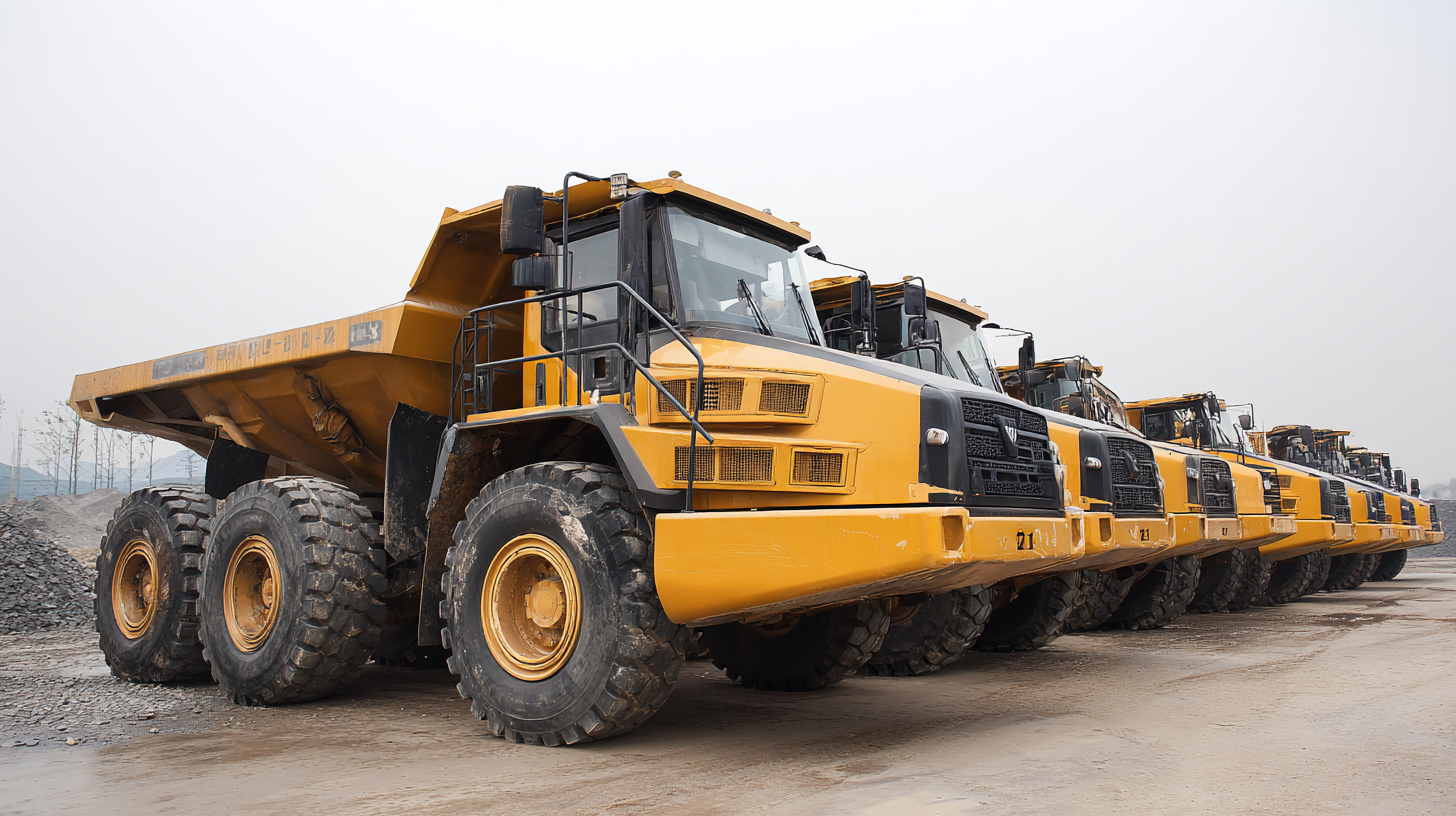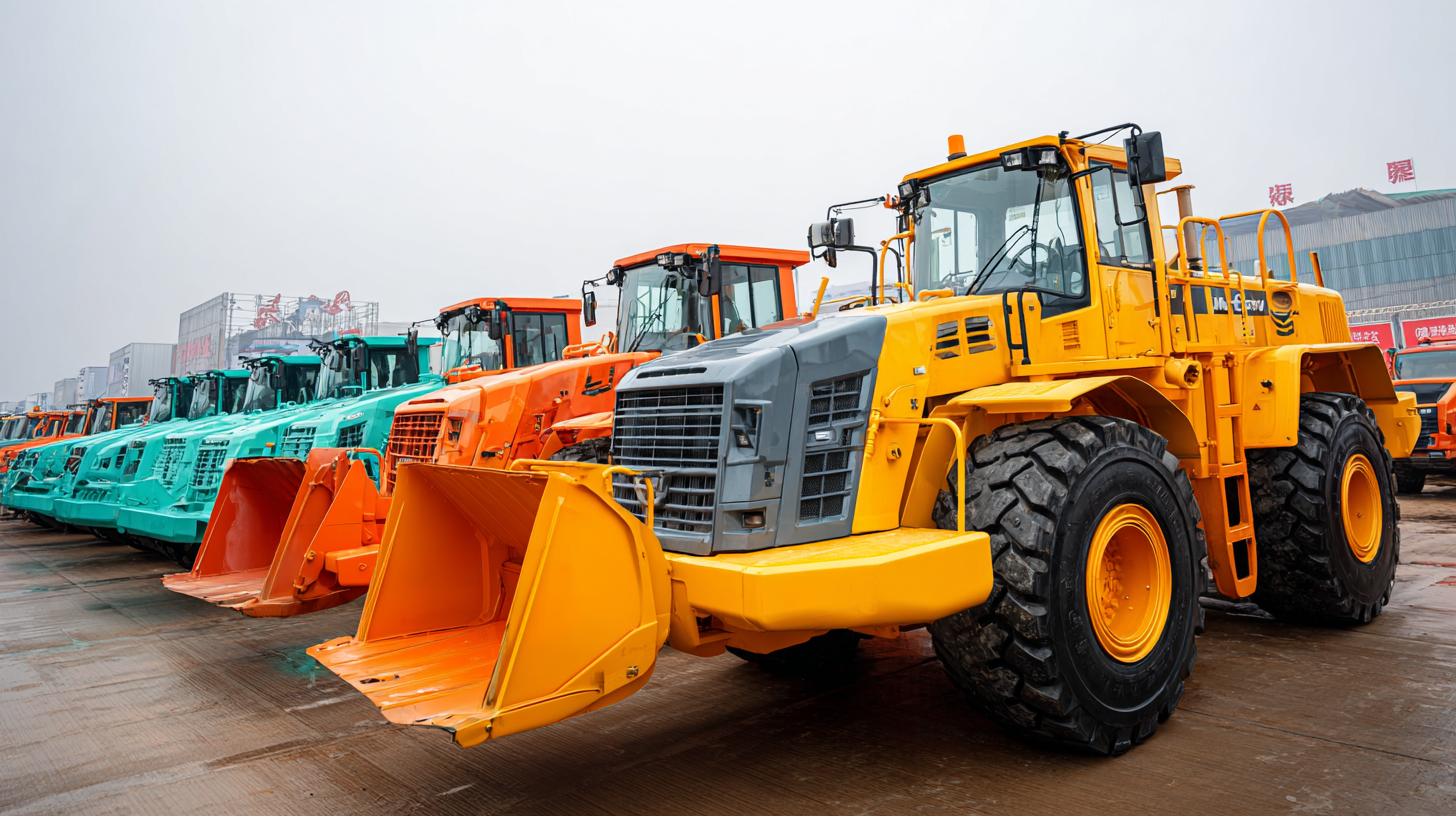Leave Your Message
- Phone
- E-mail
- Whatsapp
In today's rapidly evolving market, the demand for high-quality construction vehicles is surging globally. As a result, China has emerged as a powerhouse in the production of these vital machines, marrying innovative technology with exceptional craftsmanship. This blog will delve into the benefits of construction vehicles manufactured in China, highlighting how they meet stringent international standards while offering unmatched value.

From their robust designs tailored for various terrains to advanced features that enhance efficiency and safety, Chinese construction vehicles are proving to be a formidable choice for businesses around the world. We will explore the ways in which these vehicles not only contribute to the success of construction projects but also play a crucial role in shaping the future of the industry on a global scale. Join us as we discover the remarkable journey of construction vehicles crafted in China, designed for excellence and innovation at every turn.
The construction vehicle industry has witnessed a remarkable transformation, largely fueled by innovative manufacturing techniques that have emerged from China. These advancements have not only enhanced the production efficiency of construction vehicles but have also elevated their overall quality, making Chinese manufactured equipment a formidable player in the global market. Automation and precision engineering have become the backbone of this evolution, enabling manufacturers to produce more reliable and durable vehicles that meet the rigorous demands of construction projects worldwide.
Moreover, cutting-edge technologies such as 3D printing and IoT (Internet of Things) integration are paving the way for smarter construction vehicles. These techniques allow for customizable designs and real-time monitoring of vehicle performance, ensuring higher productivity and safety on job sites. As the industry pushes toward sustainability, Chinese manufacturers are also investing in eco-friendly processes and materials, further bolstering their reputation as leaders in global construction vehicle manufacturing. This dedication to innovation not only reinforces China's position in the industry but also promotes a progressive approach to construction solutions for the world.

The global electric construction equipment market is poised for remarkable growth, projected to expand from $12.04 billion in 2024 to an astonishing $57.95 billion by 2032. This surge represents a compounded annual growth rate (CAGR) that highlights the increasing reliance on advanced electric technologies in the construction sector. As municipalities and construction firms prioritize sustainability, the adoption of electric vehicles is becoming more prominent, aligning with global efforts to reduce carbon emissions and enhance energy efficiency.
Advanced technology plays a crucial role in enhancing the performance of construction vehicles. In 2024, the construction industry experienced a robust 10% increase in nominal value added, further reinforced by a 12% boost in related investments. These figures reflect a sector that is not only resilient but also increasingly innovative. Innovations such as smart sensors, automation, and IoT connectivity are reshaping how construction equipment operates, leading to improved safety, efficiency, and productivity on job sites. As construction vehicles become more adept at meeting the demands of modern engineering projects, their design and function are optimized through cutting-edge technological advancements.
China's construction industry is increasingly embracing sustainability as a core principle, leading the charge in green innovation on a global scale. As Chinese companies expand their reach through initiatives like the Belt and Road Initiative, they are not only enhancing their economic landscape but also committing to environmentally responsible practices. The rise of electric vehicles and renewable energy projects is at the forefront of this movement, with many leading enterprises establishing factories in various countries, thereby promoting clean energy globally.
To ensure a sustainable future, it's essential that firms integrate green practices across their operations. Here are some tips for companies looking to enhance their sustainability initiatives:
The construction vehicle market has witnessed a significant transformation in recent years, with Chinese manufacturers taking a prominent role on the global stage. According to the latest report from Markets and Markets, the global construction equipment market is projected to reach $165.8 billion by 2027, growing at a CAGR of 5.6% from 2022 to 2027.
 Chinese brands such as SANY and XCMG are not only increasing their market share domestically but are also expanding their global footprint through strategic partnerships and collaborations with foreign companies. This shift is marking a new era of quality and reliability in construction vehicles produced in China.
Chinese brands such as SANY and XCMG are not only increasing their market share domestically but are also expanding their global footprint through strategic partnerships and collaborations with foreign companies. This shift is marking a new era of quality and reliability in construction vehicles produced in China.
To effectively broaden their reach, Chinese manufacturers are leveraging international partnerships to enhance their product offerings and meet diverse market needs. For instance, SANY has established joint ventures in regions like Europe and North America, allowing for localized production and tailored solutions. Furthermore, a report from Frost & Sullivan highlights that the Asia Pacific region accounted for over 50% of the global construction equipment market share in 2021, emphasizing the strategic importance of this area in global operations. These partnerships enable Chinese brands to not only enhance their technology but also to adapt to local regulations and customer preferences, reinforcing their competitive position in the global marketplace.
In the competitive landscape of construction vehicles, China has emerged as a powerhouse, prioritizing quality assurance to meet international standards in manufacturing. This commitment to excellence is reflected not only in the technologies adopted but also in the rigorous quality control processes implemented at every stage of production. Manufacturers are investing in advanced machinery and training skilled workers, ensuring that every vehicle produced is reliable and durable. This focus on quality not only enhances performance but also builds trust with clients worldwide.
Tip: When evaluating construction vehicles, look for certifications from established quality standards organizations. This can provide assurance of the vehicle's reliability and safety features.
Moreover, companies are adopting a systematic approach to quality management, incorporating feedback loops and continuous improvement practices. This proactive stance allows them to address issues before they escalate and maintain high production standards. By aligning manufacturing processes with global benchmarks, Chinese manufacturers are positioning themselves as leaders in the global construction vehicle market.
Tip: Always request to see the quality assurance protocols used by manufacturers. Understanding these processes can give insights into their commitment to quality and safety.
| Vehicle Type | Manufacturing Standards | Quality Control Measures | Market Reach | Employee Training Programs |
|---|---|---|---|---|
| Excavators | ISO 9001, ISO 14001 | Six Sigma, TQM | Asia, Europe, North America | Monthly workshops |
| Bulldozers | ISO 45001 | Incoming Quality Control | Latin America, Africa | On-the-job training |
| Loaders | ISO 50001 | SPC, FMEA | Global | Quarterly certifications |
| Crushers | ISO 9001, CE Certification | Regular audits | Middle East, Asia | Skill development programs |
| Dump Trucks | ISO 9001 | 2D and 3D inspections | Australia, New Zealand | Leadership training |
